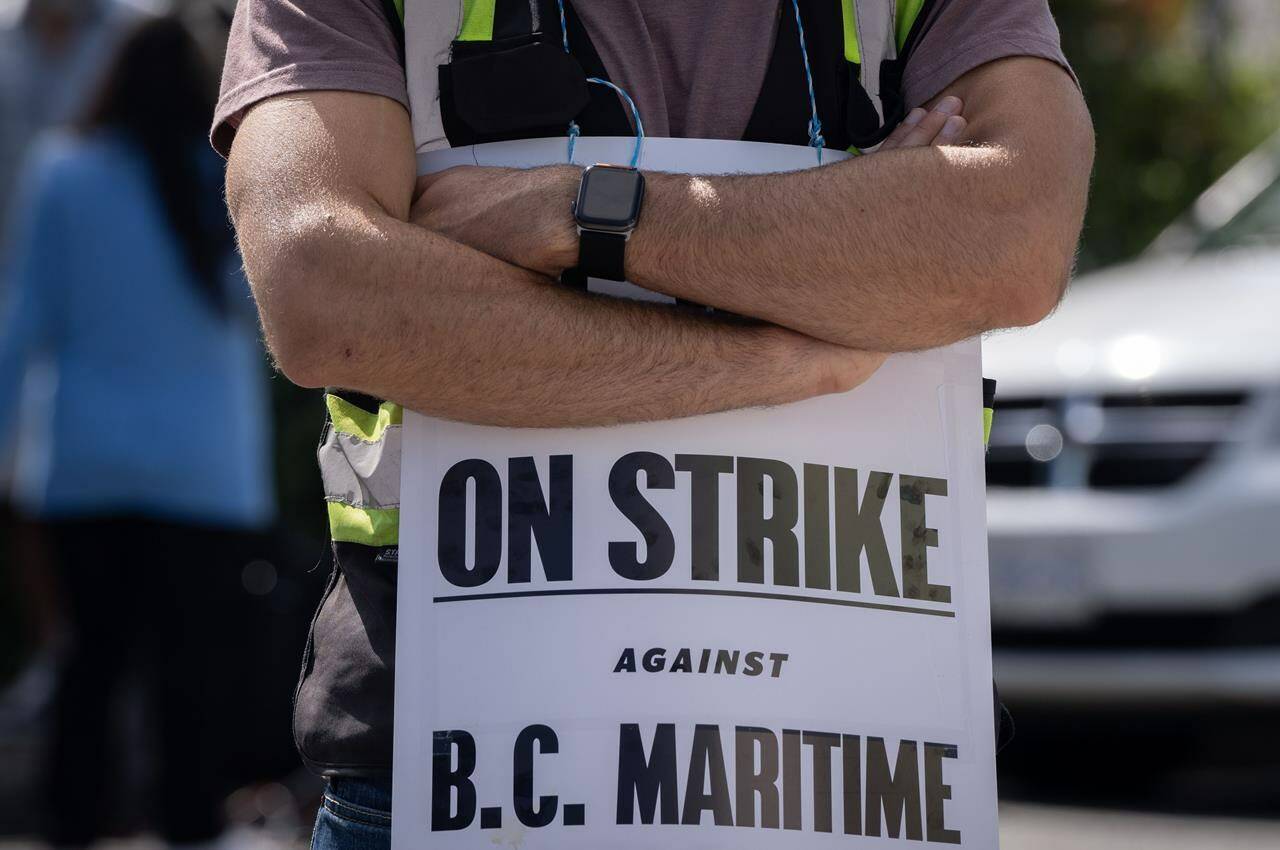The union representing thousands of striking British Columbia port workers is asking the federal government to not interfere after business groups called for back-to-work legislation.
The International Longshore and Warehouse Union Canada’s president, Rob Ashton, held a news conference Sunday afternoon after 7,400 members walked off the job Saturday morning.
“For the last 30 years, we’ve had labour peace in this province. It’s been almost 30 years since our union has been on strike,” Ashton said Sunday.
“If the (BC Maritime Employers Association) gets their way, and their way is to let the government make this collective agreement for them, there will never be labour peace on the waterfront.”
Ashton said federally mediated talks with the association are ongoing, and will continue “all day, all night” to try and get longshore workers back on the job.
“This deal must be reached at the collective bargaining table,” he said.
Business groups across Canada have sounded the alarm about the potential economic impact of the strike, which affects thousands of cargo loaders and 49 of the province’s waterfront employers at more than 30 ports across the province.
In response to calls for back-to-work legislation, a spokesman for Labour Minister Seamus O’Regan said in a statement that the federal government is not looking past the bargaining table because the best deals are made there.
“Federal mediators continue to support the parties in their negotiations,” he said.
Ashton didn’t take questions on Sunday afternoon, holding a brief press conference flanked by members of the union’s bargaining committee outside the Federal Mediation and Conciliation Service’s office in downtown Vancouver.
“We do not plan to leave the bargaining table. We expect the BCMEA here all day, all night until a deal is done so our people can go back to work with a fair negotiated deal for all of us,” he said. “Because that’s where we belong, is back to work.”
Elsewhere in B.C., small communities such as Prince Rupert are feeling the effects of the strike as local officials wait and see what’s in store should the dispute stretch on.
Prince Rupert Mayor Herb Pond told The Canadian Press Sunday that it’s hard to overstate the significance of port operations for his community of just more than 12,000 residents.
When the port terminal opened there about 16 years ago, Pond said the city was reeling from the closure of a pulp mill, as well as a downturn in the local fishing industry.
“When the container terminal opened, it literally was us turning a corner in our economy,” he said. “The ensuing 16 years has has been incredibly remarkable not only for our little community but for Canada.”
Pond said the terminal has become one of the country’s busiest and most important trade hubs, and the people it employs have a significant presence throughout Prince Rupert.
“There’s nobody in town that doesn’t know, live beside, work with, play with somebody that’s involved in this,” he said. “It saved the community for sure and made the difference between us being a very remote small community to being this critical hub for for the Canadian economy.”
Pond said the port terminal has plans to expand, and CN Rail has also made investments in railway infrastructure that have the potential to open up a lot of future opportunities in Prince Rupert, though he has to wait and see as the strike continues.
“If it gets protracted for any great length of time, it’s going be hard on families, it’s going be hard on the community, and not good for the Canadian economy,” he said. “We move a lot of goods.”
The union has previously said contracting out, port automation and cost of living are key issues in the dispute.
The Canadian Press

